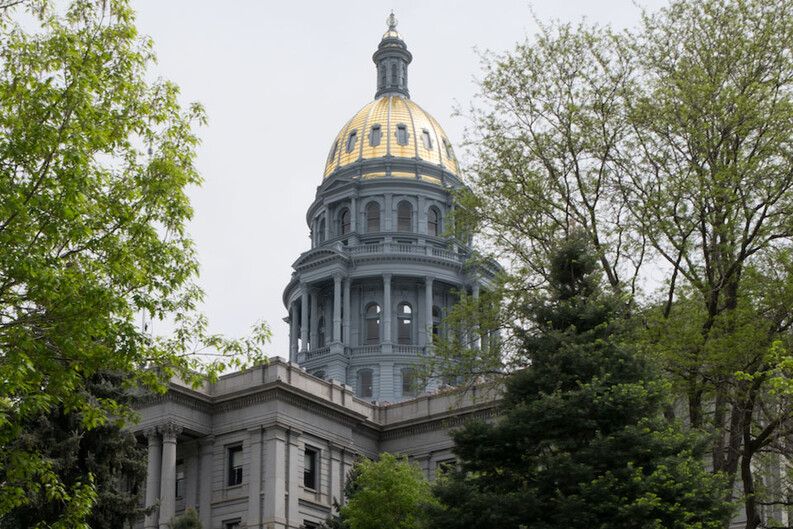Liman Fellow Adam Rice ’19: Problem-Solving Through Government During COVID-19

As a 2019-2020 Liman Fellow in Colorado’s Office of the Attorney General, Adam Rice ’19 focused on the workplace rights of economically marginalized workers. He has continued in the office as Counsel to the Attorney General. He wrote this essay for The Liman Center Reports in the summer of 2020.
My Liman Fellowship project focused on enhancing the role of the Colorado attorney general’s office in enforcing workplace protections for economically marginalized Colorado workers. This presented a challenge because the office did not previously devote attorneys affirmatively to enforcing workplace protections. It also afforded me unexpected opportunities to advocate for workers’ rights by shepherding Colorado’s participation in lawsuits and other advocacy efforts in conjunction with other states.
During my fellowship, I spurred Colorado’s participation in various multistate efforts protecting workers. Most notable is New York v. Scalia, a lawsuit challenging the U.S. Department of Labor’s new joint employer rule, which narrows the circumstances in which two businesses — say, a brand-name corporation and a staffing subcontractor or franchisee — can be held jointly liable under the Fair Labor Standards Act for wage and overtime violations. In September 2020, the district court ruled that key provisions of the rule violated the Administrative Procedure Act. In addition, despite significant disruptions to the legislative session caused by COVID-19, the Colorado General Assembly passed legislation that enables the attorney general’s office to directly enforce worker misclassification laws, subject to an agreement with the Colorado Department of Labor and Employment. This legislation sets the groundwork for the attorney general’s office to take a more active and collaborative role in ensuring robust enforcement of Colorado’s workplace protections.
Of course, my fellowship experience — and the world — changed drastically starting in March 2020. The escalating COVID-19 pandemic necessitated a rapid reshuffling of priorities and resources within the attorney general’s office. This reshuffling changed the direction of my workflow and afforded me new opportunities to engage on issues that disproportionately affect low-income communities.

In mid-March, I worked on a brief at the Colorado Supreme Court supporting the validity of the General Assembly’s rules allowing it to adjourn during the COVID-19 public health emergency and return when safe without running afoul of the Colorado Constitution’s provision limiting the duration of the legislative session to 120 days. The Colorado Supreme Court ruled in our favor and issued an opinion that closely tracked our brief. Although not foreseeable at the time, this outcome — which enabled the General Assembly to operate into mid-June instead of concluding in early May as would have otherwise been required — set the stage for the groundbreaking civil rights and law enforcement accountability legislation that would later come to fruition.
The COVID-19 crisis brought renewed attention and urgency to myriad structural problems that threaten to exacerbate gaps in health, education, and economic stability along lines of class and race. In the attorney general’s office, I had the opportunity to focus on two such problems: housing instability and the digital divide.
On housing, informed in part by conversations with Liman Fellows who provide eviction defense legal services, I counseled the Attorney General on lawful avenues through which Colorado state government could limit a rash of evictions and the public health and economic harms that would inevitably follow. Ultimately, Colorado joined dozens of other states in taking action to halt eviction proceedings statewide. Although the eviction moratorium has lapsed, our office continues to leverage various advocacy tools in an effort to keep Coloradans safely housed.
COVID-19 also highlighted the lack of universal access to affordable broadband internet — the so-called digital divide or homework gap. I worked with Attorney General Phil Weiser to support his leadership of a bipartisan coalition of 38 state attorneys general urging Congress to provide additional funding to ensure all Americans have the home internet connectivity necessary to participate in telemedicine, telework, and remote schooling during the COVID-19 pandemic and beyond. I also authored a petition to the Federal Communications Commission seeking a waiver of the Commission’s rules during the pandemic to allow schools to use federal funds to extend their broadband network connectivity — via Wi-Fi hotspots or other mechanisms — to students’ homes in cases in which students cannot access virtual classrooms because they lack adequate internet connectivity at home. With the pandemic disrupting the 2020–21 school year, I continue to work with colleagues in our office and across Colorado government to identify additional short-term strategies to ensure all students have adequate at-home internet connectivity to participate in virtual classroom learning.
When the killing of George Floyd spurred a renewed reckoning with structural racism and a righteous movement for robust structural change, the Colorado General Assembly, still in session in early June because of aforementioned litigation, quickly passed Senate Bill 20-217, a groundbreaking civil rights and law enforcement integrity law. Among various changes, the legislation creates a state law private right of action for individuals whose civil rights are infringed by law enforcement and prohibits qualified immunity as a defense to such claims. The legislation also creates expansive authority for the state attorney general to investigate patterns and practices of civil rights violations by law enforcement and other governmental authorities. I advised the Attorney General on the legal and policy implications of this legislation.
Finally, outside of litigation and legislation, I am spearheading the implementation of Attorney General Weiser’s roundtable conversations with community stakeholders aimed at expanding adoption of best practices in three areas of community concern: reentry or fair-opportunity employment, safe gun storage, and reducing arrests, citations, and referrals to law enforcement for at-school student behaviors.


